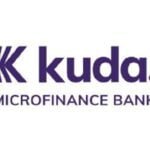Starting a business in Nigeria is an exciting venture, but to operate legally and gain credibility, registering your business with the Corporate Affairs Commission (CAC) is essential. When you register with the Corporate Affairs Commission (CAC), you make your business official. This means you can open bank accounts, apply for loans, and win the trust of customers and partners.
You might think registering with the CAC is just paperwork; however it is also a stepping stone to success. You will have a proper structure, clear ownership, and credibility that helps build your brand. If you want to protect your ideas and investments, registering your business is a must!
In this article, I’ll explain how to register your business with CAC step by step. You’ll learn what documents to prepare, how to complete the online process, and where and how to get the official registration certificate. Let’s get started!
READ ALSO: 9 Profitable Business to Start with 200k in Nigeria
What Is the Corporate Affairs Commission (CAC)?
The Corporate Affairs Commission (CAC) is Nigeria’s government body responsible for business registration. It oversees the incorporation of companies and regulates business operations. CAC ensures that businesses operate within the legal framework set by the government. This protects both business owners and consumers.
The CAC also provides guidelines for maintaining proper business records and compliance. Registered companies enjoy legal protection, including the right to own property and enter contracts. The commission also handles changes like name alterations and amendments to business information. With over 1.5 million registered companies in Nigeria, the CAC plays a crucial role in shaping the nation’s business landscape.
Many entrepreneurs find that registering with the CAC gives them a sense of security and legitimacy. It shows potential investors and customers that your business is serious and compliant with the law. For many, this step marks the beginning of a professional and structured business journey.
A registered company also has protection under the law and can resolve disputes more effectively.
READ ALSO: How to start a paleta business and grow big
What Are The Documents Required to Register Your Business with CAC
Before you proceed with the business registration, you must decide your business structure. Are you setting up a private limited company, a public limited company, or a sole proprietorship? Your choice affects the documents required and the process to follow.
The specific documents required depend on the type of business entity you’re registering. Below is a breakdown of the necessary documentation for different business structures:
Business Registration Requirements (Sole Proprietorship or Partnership):
- Proposed Business Name: Provide at least two unique name options to ensure availability.
- Business Address with Proof: Proof of your business’s registered address, such as a utility bill or lease agreement.
- Nature of Business: Clearly describe the primary activities your business will undertake.
- Proprietor’s Details:
- Full Name: As it appears on official identification.
- Residential Address: Current home address.
- Valid Identification: National ID, Driver’s License, International Passport, or Voter’s Card.
- Passport Photograph: Recent color passport-sized photo.
- Phone Number and Email: For official correspondence.
These requirements ensure that the business name is unique and that the proprietor’s identity is verified.
READ ALSO: 20 Small Business Ideas That Will Work In Nigeria
Company Registration Requirements (Private or Public Limited Company):
- Proposed Company Name: Two unique name options to check for availability.
- Registered Office Address: Official address where the company’s records are maintained.
- Share Capital Details: Specify the amount of authorized share capital and its division among shareholders.
- Directors and Shareholders Information:
- Full Names and Residential Addresses: For all directors and shareholders.
- Valid Identification: National ID, Driver’s License, International Passport, or Voter’s Card for each director and shareholder.
- Passport Photographs: Recent color passport-sized photos for all directors and shareholders.
- Email Addresses and Phone Numbers: For communication purposes.
- Memorandum and Articles of Association (MEMART): A legal document outlining the company’s structure, objectives, and internal regulations.
- Statement of Compliance: A declaration, typically by a legal practitioner, confirming adherence to the requirements of the Companies and Allied Matters Act (CAMA).
These documents collectively establish the company’s legal identity, governance framework, and operational guidelines.
Incorporated Trustees (Non-Profit Organizations, NGOs, Religious Bodies):
- Proposed Name of the Organization: Two unique name options to ensure availability.
- Trustees’ Information:
- Full Names and Residential Addresses: For all trustees.
- Valid Identification: National ID, Driver’s License, International Passport, or Voter’s Card for each trustee.
- Passport Photographs: Recent color passport-sized photos for all trustees.
- Phone Numbers and Emails: For communication purposes.
- Registered Office Address: Physical location where the organization’s activities are managed.
- Constitution of the Organization: A document detailing the organization’s objectives, governance structure, membership, and meeting procedures.
- Minutes of the Meeting Appointing Trustees: Documented evidence of the resolution to appoint trustees, signed by the chairman and secretary of the meeting.
- Trustees’ Declaration Form: A sworn affidavit by each trustee affirming their eligibility and willingness to act as a trustee.
These requirements ensure that the organization operates transparently and in accordance with its stated objectives.
Make sure your business name is available by checking the CAC’s name search tool online. This small step avoids delays later on. Being organized with your documentation speeds up the registration process and minimizes errors.
READ ALSO: Smart Ways To Invest Your Money in Nigeria: Real Estate, Agriculture, Stock Market & More
Steps to Register Your Business with the CAC
Registering your business with the CAC is a step-by-step process. Follow these instructions to complete the process efficiently.

Step 1: Create an Account on the CAC Portal
Visit the official CAC portal online and register for an account. Enter your details and create a username and password. Once registered, log in to access the online registration form. You might have verify your account using a verification link that will be sent to your email.
Step 2: Conduct a Name Search
Before you can proceed with your business registration, you must check if your proposed name is available for registration. Use the CAC name search feature to check if your chosen business name is available. This is important as each name must be unique. If your desired name is already in use, you’ll need to select a different one.
Step 3: Fill Out the Registration Form
Complete the registration form with all required details. Provide information about your directors, business address, and share capital. The form will also ask for your business structure and other relevant details. Ensure that every field is accurately completed.
Step 4: Upload Necessary Documents
Scan and upload the required documents, such as:
- Identification for directors
- Proof of registered address
- Memorandum and Articles of Association (if needed)
Review your documents to ensure they meet the CAC guidelines. Mistakes can delay your registration.
Step 5: Pay the Registration Fee
Once you complete the form, you will be prompted to pay the registration fee. The fee varies depending on your business type. You can pay online using a debit or credit card. Keep your transaction receipt for future reference. (I’ll list the registration fee for different business type in subseques heading in this post)
Step 6: Review and Submit Your Application
Before submitting, review all your information carefully. A small error can cause delays or rejection of your application. After confirming that all details are correct, submit your application and wait for the CAC’s confirmation email.
After successfully registering your business with Nigeria’s Corporate Affairs Commission (CAC), you can obtain your electronic Certificate of Registration through the same online portal. This digital certificate is considered official and can be downloaded and printed for your records.
If you require a physical copy with official authentication, you can obtain a Certified True Copy (CTC) of your registration documents. You can collect the physical Certified True Copy from the CAC office.
READ ALSO: 15 Businesses That Run Themselves You Should Invest In
What is the Cost of Business Registration with CAC
The cost of registering a business with Nigeria’s Corporate Affairs Commission (CAC) varies based on the type of business entity. Here’s a breakdown of the fees:
1. Business Name Registration (Sole Proprietorships and Partnerships):
- Name Reservation: ₦500
- Registration Fee: ₦10,000
- Total: ₦10,500
2. Private Company Registration:
- Name Reservation: ₦500
- Registration Fee:
- For companies with share capital of ₦1 million or less: ₦10,000
- For companies with share capital above ₦1 million and up to ₦500 million: ₦5,000 for every ₦1 million share capital or part thereof
- For companies with share capital above ₦500 million: ₦7,500 for every ₦1 million share capital or part thereof
3. Incorporated Trustees (Non-Profit Organizations, NGOs, Religious Bodies):
- Name Reservation: ₦500
- Registration Fee: ₦30,000
- Total: ₦30,500
Other fees include:
- Filing of notice of change of business name: 5,000 Naira
- Filing of notice of change in business address: 1,000 Naira
- Filing of notice of change in proprietorship: 1,000 Naira
- Filing of annual returns: 1,000 Naira
- One set of incorporation forms: 500 Naira
Please note that these fees are subject to change, and additional costs may arise depending on specific requirements or additional services.
READ ALSO: Is it Legal to Use a Random Nigeria Mailing Address for Online Registration?
Benefits of Registering with the CAC
Registering your business with the CAC offers numerous benefits that go beyond mere legal compliance. It opens doors to new opportunities and safeguards your business interests.
Major Benefits Include:
- Legal Recognition: A registered business is recognized by the government and is protected under Nigerian law.
- Access to Funding: Banks and investors prefer dealing with registered companies.
- Enhanced Credibility: Customers and partners are more likely to trust a business that is officially registered.
- Tax Incentives: Registration can lead to potential tax benefits and exemptions.
- Intellectual Property Protection: Your business name and brand are legally protected once registered.
These benefits make registration a crucial step in establishing a robust and reputable business. Studies show that registered companies are 40% more likely to secure investments and loans. By registering, you also position your business for growth and long-term success in Nigeria’s competitive market.
SEE ALSO: 25 Amazing Businesses You Can Start With 50K and grow Into Millions
While many entrepreneurs handle the CAC registration process on their own, seeking professional assistance can simplify the process. Lawyers, accountants, and business consultants in Nigeria offer services to help navigate the complexities of business registration. They can ensure all documents are in order and guide you through each step.
Professional assistance is particularly helpful if your business structure is complex or if you encounter any legal hurdles. Experts can also advise on tax matters and compliance issues. Although this service comes with a fee, many business owners find that it saves time and reduces stress. With this, you can avoid common pitfalls and ensure your registration is completed correctly the first time.
You can also chat with AtlanticRide Business Consultant
Frequently Asked Questions
What Documents Do I Need for CAC Registration?
You typically need a copy of your identification, a business name reservation certificate, proof of address, and the Memorandum and Articles of Association (for companies).
How Long Does the Registration Process Take?
The online process can take a few days to a couple of weeks, depending on the complexity of your business and the completeness of your documentation.
Can I Register My Business Without a Lawyer?
Yes, many entrepreneurs successfully register their businesses on their own using the CAC portal. However, professional assistance can simplify the process if needed.
How much does it cost to register a business name with CAC in Nigeria?
Costs vary by business type and share capital. For Sole Proprietorships and Partnerships business registration, it cost ₦10,000; for private/ public company, business registration cos is within 20,000 to 30,000 depending on the business share capital. Additional fees for name reservation and other services is excluded.
Do I Need to Update My Registration Regularly?
Yes, you must update your CAC records when there are changes in your business, such as a new address or change in directors. Regular updates keep your business compliant with Nigerian law.
READ ALSO: Smart Ways To Invest Your Money in Nigeria: Real Estate, Agriculture, Stock Market & More
Conclusion
Registering your business with the Corporate Affairs Commission is a critical step in building a solid foundation for success in Nigeria. Whether you choose to handle the process yourself or seek professional assistance, taking the time to register properly pays off in the long run. Use the tips and steps outlined here to simplify the registration process and set your business on the path to success.
Take action today. Get your documents ready, and register your business. Your future as a thriving entrepreneur starts with this important step. If you need mor assistance, you can also chat with AtlanticRide Business Consultant.









